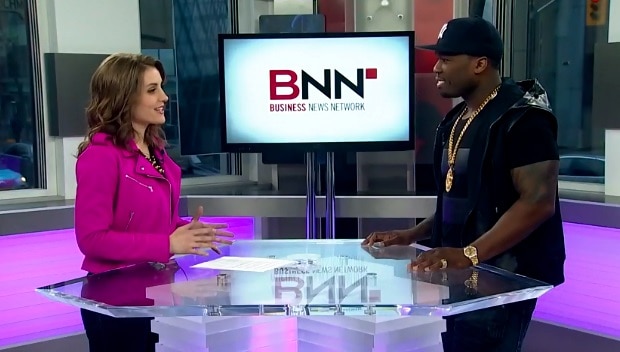Kristina Partsinevelos worked in sales at IBM in Montreal, but took a risk and made a major career switch to journalism. Now, she’s a reporter at Business News Network. She talks about managing a career change, selling yourself, the importance of to-do lists and what she looks for in a co-worker.
SDTC: Most of us are finding, I think, that our career path is not going to be as straight-and-narrow as we thought. You worked in sales before you became a reporter for BNN. Can you give any tips to our readers who might be plotting a similar switch?
Kristina Partsinevelos: Generation Y, or so-called Millennials, will switch careers at least five or more times in their professional lives. That inherently involves risk and the possibility of failure. Based on my experience, once I got past the fear of failure, the transition to a career in journalism was made easier by asking for help and embracing expert advice from people already working in the industry. I was equipped with a Bachelor of Commerce and business experience, but I had never written anything longer than a business plan, let alone a feature newspaper article. Prior to leaving my job in sales and applying to journalism school, I contacted local journalists and even briefly interned at a radio station to get a better sense of what that world was all about. A new career path might seem exciting at first, but sometimes people make the switch without doing proper research, either in person or online. It wasn’t easy to give up a steady paycheck and a comfortable life in Montreal for an entirely new career in a different industry. Yet confidence played a major role and continues to push me forward.
 SDTC: What are some of the positive things about gaining experience in different fields?
SDTC: What are some of the positive things about gaining experience in different fields?
KP: Aside from learning how to write concisely due to rigid word count limits, I learned how to analyze and interpret situations without bias. Becoming a journalist further developed my ability to think critically and question information that is presented to me, whether it is a cover story or the content written on the label of my shampoo bottle. I have also learned how important it is to listen attentively. I’ll be the first to admit that I lack patience, yet a life in journalism quickly teaches you about active listening and being calm and composed. Finally, we often hear about transferable skills, but working in sales did improve my ability to get a job at a national business channel only six months out of school. Being able to sell yourself is, I believe, one of the most important traits to have in any job.
SDTC: You previously served as chair for 5 Days for the Homeless. Can you tell us a little about the organization?
KP: 5 Days for the Homeless is a student-led initiative that raises money for local non-for-profit youth shelters. University students and volunteers across Canada spend five days and nights outside, on the streets to raise money and awareness for local homeless youth. Throughout the campaign, participants are expected to sleep outside with only a sleeping bag in March, forego a shower and a change of clothes, while eating only what is donated (some years I would lose weight while other years I would gain from solely eating Tim Hortons muffins). The point of the campaign is to raise funds and awareness for the plight of homelessness. Homeless people do not have to be accessories to our environment.
SDTC: How do you balance philanthropy with your professional obligations?
KP: I live by my to-do list and I seem to get a thrill with checking things off that list. Luckily, during 5 Days for the Homeless, I had an extremely supportive employer that allowed me to work while also helping to organize the campaign. Having an employer who supports your endeavours outside of the office is valuable, but I believe it’s still hard to come by. It’s never easy to juggle multiple, competing projects, yet, if it means something to you, you have to make it a priority and make it work.
SDTC: What’s a recent professional achievement that has made you proud?
KP: While working for CBC in Edmonton, I was assigned a fatal car crash without knowing any of the details surrounding this tragic incident. We rushed to the scene, which was several hours away, where my cameraman and I learned that six teens had died. I ended up staying along the border of Saskatchewan in a small town for three days with only that day’s clothes on my back. With two months of experience, I quickly learned how important it is to stay organized, focus on the task, and use your strengths to maximum advantage. I wrote my TV scripts in a van while filing local and national radio stories from a mobile phone—not ideal, but it all came together. Despite the horrible circumstances of the crash, I was proud to be the recent graduate who filed stories for all of Canada to see and hear.
SDTC: Can you share a story of a difficult time in your career, and how you overcame it?
KP: I competed in public speaking contests throughout my youth and I filed TV and radio reports for CBC Edmonton. However, working at Business News Network is a wholly different experience because I have to go on air live several times a day with only scribbled notes in my hand. During the first month or so, I would often fumble my words, get nervous and speak way too fast (my grandmother still calls me to tell me to slow down!). I was rather frustrated with my work at times, yet seeking the advice of experienced colleagues helped me correct a few mistakes. Practice makes perfect, as the saying goes, but I found that I was able to improve quickly by applying their advice.
SDTC: What are three skills you need to do your job well?
KP: 1. Drive. 2. Confidence. 3. Feedback.
You need constant drive to get the job done. You need confidence to showcase your work capably. And, lastly, you need the ability to take and apply feedback to continually improve your work.
 SDTC: What’s a valuable way a young woman can stand out in your field? What do you look for in people you want to work with?
SDTC: What’s a valuable way a young woman can stand out in your field? What do you look for in people you want to work with?
KP: Self-help books and motivational speakers always remind that “believing in yourself” is the first step. As cliché as it may be, I agree with that notion. Women who succeed professionally in a competitive work environment all have one thing in common: confidence and the ability show it (in a tactful way). And if they’re not confident, they sure know how to fake it. In TV, you can’t work alone; there will always be a team behind the lens. I want to work with those who I feel will follow through on their promises and know how to have a good laugh!





 Follow Us On Instagram
Follow Us On Instagram
